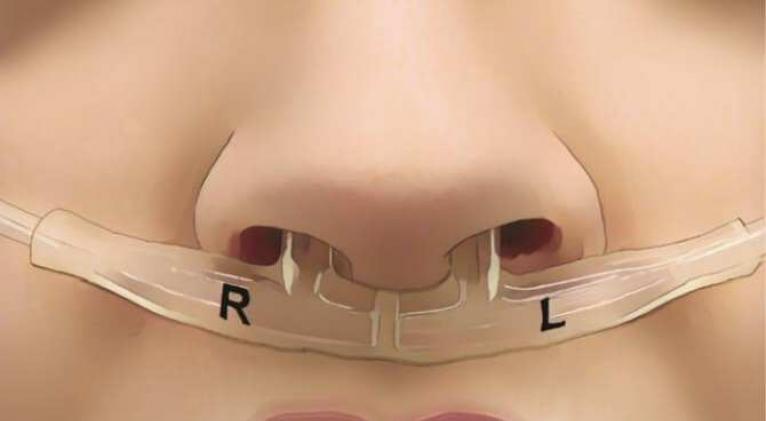
Recent research has revealed that it is possible to identify people based solely on their breathing patterns, with an accuracy of 96.8 percent, rivaling that of some voice recognition technologies. These nasal respiratory "fingerprints" can also offer information about a person's physical and mental health, beyond the lung symptoms typically diagnosed by breathing.
The study is the work of a team that includes, among others, Noam Sobel and Timna Soroka of the Weizmann Institute of Science in Israel.
In mammals, the brain processes olfactory information during inhalation. This connection between the brain and breathing led researchers to consider that, since each brain is unique, perhaps some details of breathing way, influenced by the brain's pattern of processing olfactory information, might also be unique to each person.
To test the validity of the idea, the team created a lightweight, portable device that tracks nasal airflow continuously for 24 hours using soft tubes placed under the nostrils. Most conventional breathing tests last between 1 and 20 minutes and focus on assessing lung function or diagnosing diseases distinguishable by their respiratory symptoms. However, neither their duration nor their diagnostic orientation make them suitable for capturing subtle patterns.
The research team placed the device on 100 healthy young adults and asked them to perform their daily activities. With the data collected, the team identified each individual among the others using only their breathing patterns, with an accuracy of 96.8 percent. This high accuracy was maintained over a period of two years in multiple test repetitions.
Furthermore, the study has revealed that these respiratory fingerprints correlate with body mass index (BMI), sleep-wake cycle, depression and anxiety levels, and even some behavioral traits. For example, participants who scored relatively high on anxiety questionnaires had shorter inhalations and greater variability in breathing pauses during sleep.
The study, titled "Humans have nasal respiratory fingerprints," has been published in the academic journal Current Biology. (Source: NCYT from Amazings) (Text and Photo: Cubasí)